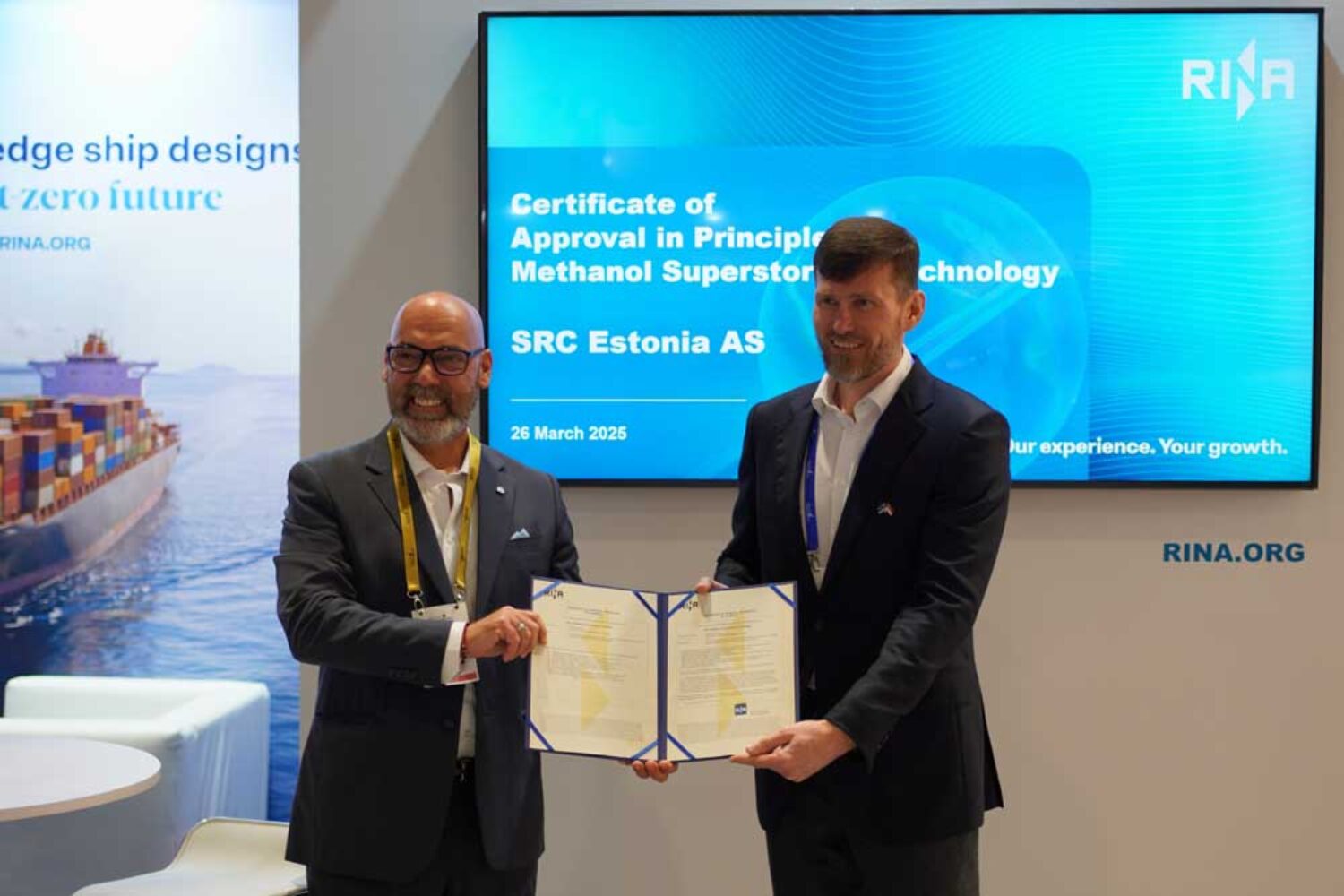The maritime tech company SRC has received “Approval in Principle” (AiP) from the Italian classification society Rina for a new type of methanol tank.
By using an innovative “superstorage”, which originates from offshore technology, ships will be able to bunker significantly more methanol in the future.
Methanol (CH3OH) is considered a promising alternative fuel in shipping. Unlike ammonia, for example, which is another toxic beacon of hope for the energy transition, it is easy to store and handle. According to Rina, methanol produced from renewable sources therefore offers “a clear path to the IMO’s goal of achieving net-zero emissions by around 2050”. Around 240 methanol-capable ships are currently in service or on order.
One disadvantage of methanol, however, is its low energy density. Compared to conventional heavy fuel oil, the fuel requires 2.4 times the amount to achieve the same performance. This has an impact on the range and also on the design of the ship, as fuels with a low flash point must be protected by a cofferdam at least 600 mm thick, which separates the inner and outer walls of the tank.
SRC superstorage increases bunker volume by 85
SRC’s “Superstorage” technology makes it possible to overcome this obstacle. It replaces the cofferdam with a solid elastomer core embedded between two steel plates. According to Rina, these 25 mm thick “sandwich walls” provide a triple barrier against leaks, and the compact design allows up to 85% more volume to be bunkered – significantly increasing the range of a methanol ship. The technology has been used in the maritime and offshore sector for over two decades and meets the requirements of fire class A60. It is approved by all major members of the International Association of Classification Societies (IAS).
With the AiP, Rina has now confirmed that this storage solution complies with the guidelines for the approval of new technologies. The “Superstorage” solution can “improve the utilization of space for the storage of methanol and ethanol on board various types of vessels”, it says.
“Rina is always promoting innovation in the maritime industry,” said Simone Manca, Vice President of Rina North Asia. “The approval in principle of the SRC methanol superstorage technology underlines the significant potential of the solution to enable the introduction of methanol as a marine fuel.”
“This is another important step for the acceptance of methanol superstorage technology in the industry and provides clarity for shipowners in evaluating an alternative fuel that will prove itself in the long term and meet shipping’s decarbonization goals,” said Alex Vainokivi, SRC Group Innovation Manager. The technology should be able to be retrofitted without any significant impairment to the ship’s structure.













